6th Annual International Conference in on Enforcement “Made in Odesa” Was Held With the assistance of the EU Project Pravo-Justice
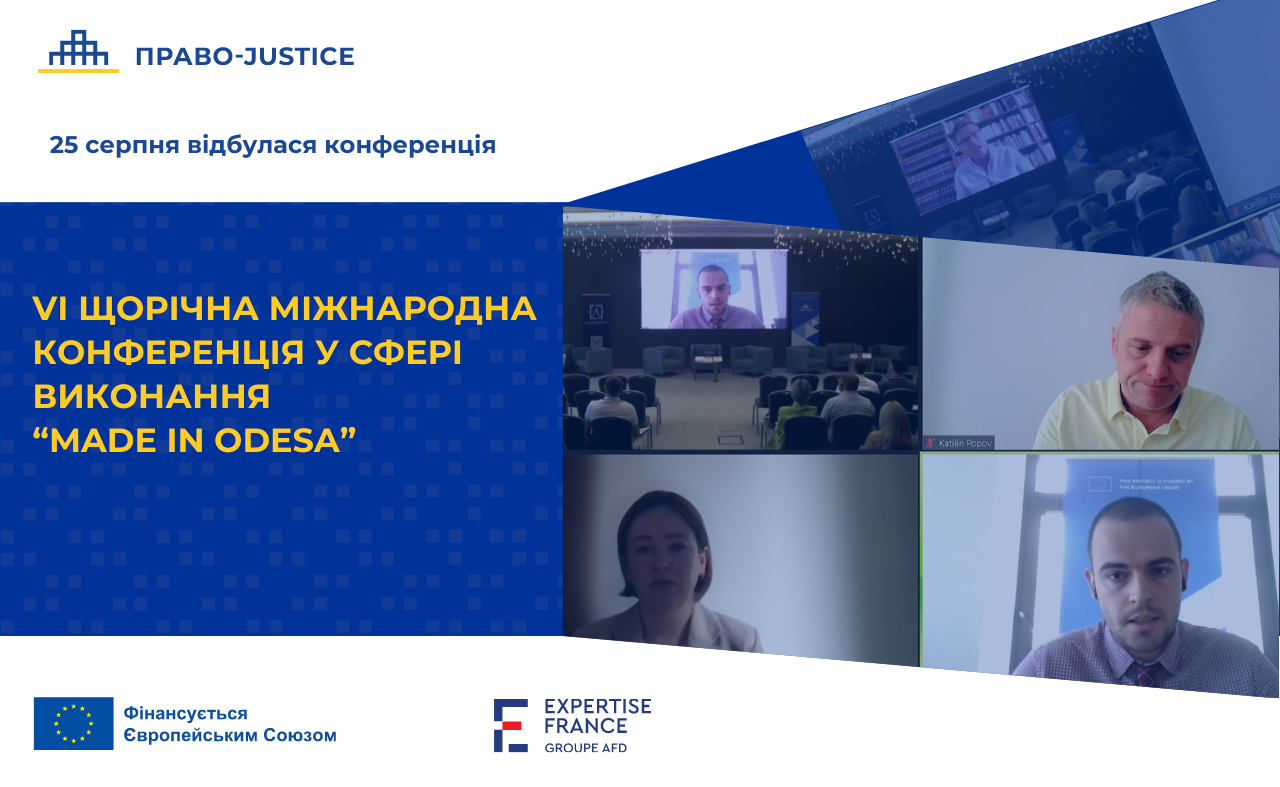
On August 25, the Council of Private Enforcement Officers of the Odesa Region, assisted by the EU Project Pravo-Justice, held the 6th Annual International Conference “Made in Odesa” on the topic: “Enforcement at the Present Day”. The event was attended by MPs; representatives of the Ministry of Justice of Ukraine, PEOs community, State Enforcement Service, and Regional Justice Reform Councils; judges; specialists of SE “SETAM”, JSC “Prozorro.Prodazhi”, and SE “NAIS”; lawyers; notaries; academia; judicial officers from other countries; experts of the EU Project Pravo-Justice.
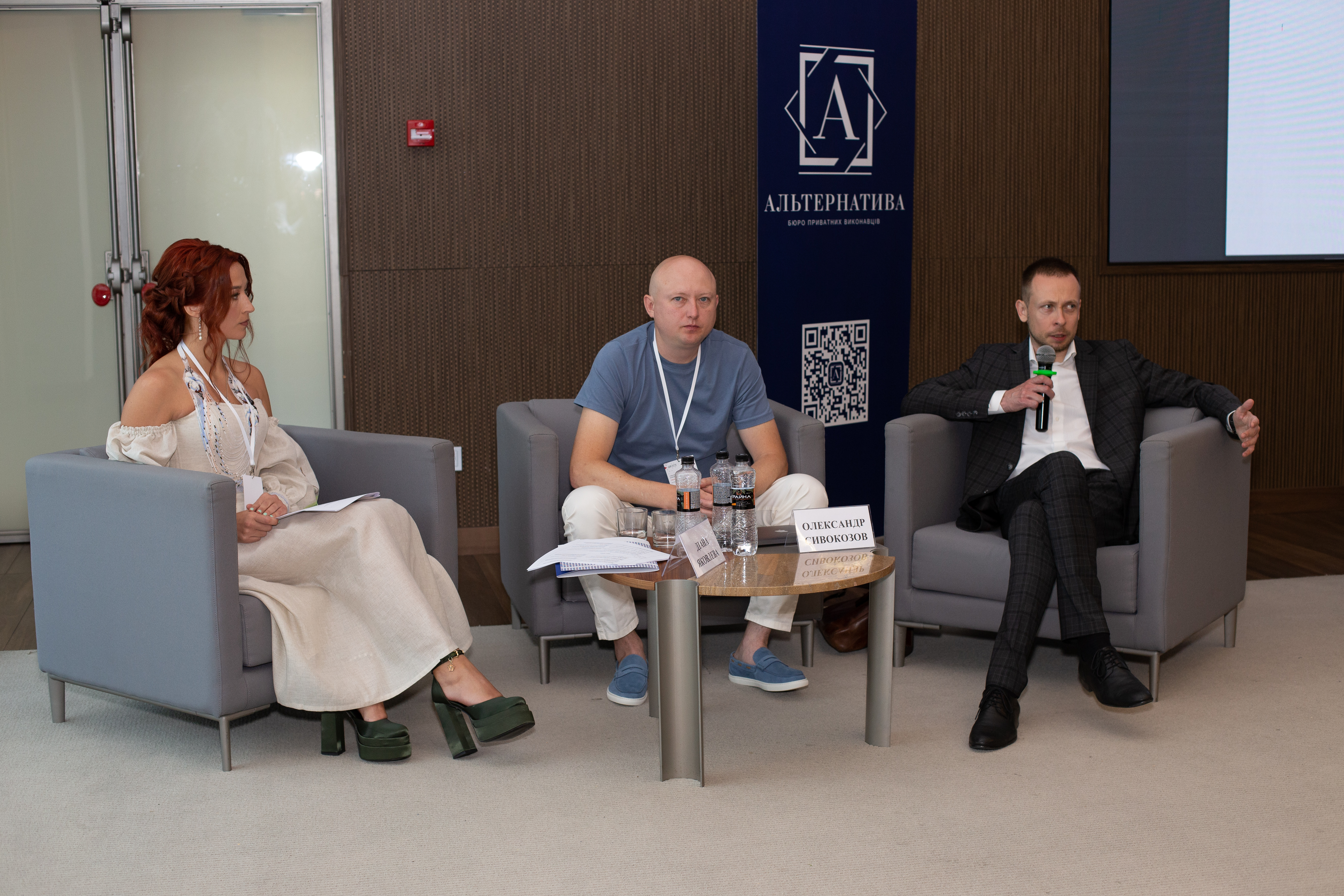
According to Deputy Minister of Justice Andrii Haichenko, the Ministry of Justice pays particular attention to the issues relating to PEOs’ disciplinary liability and digitalization of enforcement proceedings.
“I hope that in a month or two, the Verkhovna Rada of Ukraine will adopt the relevant draft law and we will receive revolutionary changes in the digitalization of enforcement proceedings. Our goal is the digitization of the EO’s activities to the maximum extent possible and improvement of the ASEP operation,” said Andrii Haichenko.
MP Liubov Shpak paid tribute, in her welcome speech, to the PEO’s efficiency during martial law and promised that Parliament would contribute to the development of enforcement in Ukraine.
“Convince us that the legislative proposals submitted for consideration to the Verkhovna Rada are reasonable, and the respective decisions will be made,” stated Liubov Shpak.
Iryna Zharonkina, Property Rights and Enforcement Component Lead, EU Project Pravo-Justice, noted the importance of improving enforcement in the context of Ukraine – EU cooperation and the economic reconstruction of our country.
“Enforcement of court decisions is an integral part of the judicial reform that is taking place in our country. Moreover, the improvement of the enforcement system is a component of Ukraine’s economic rebuilding. The European Commission has announced the 50-billion-euro Ukraine Facility program to support the recovery of the country. This program implies investments, and their amount will be determined, in particular, depending on how well the investors’ rights will be protected in terms of the fulfillment of obligations,” said Iryna Zharonkina. She also presented the results of a sociological study in the field of enforcement, which was recently conducted at the request of the EU Project Pravo-Justice”. 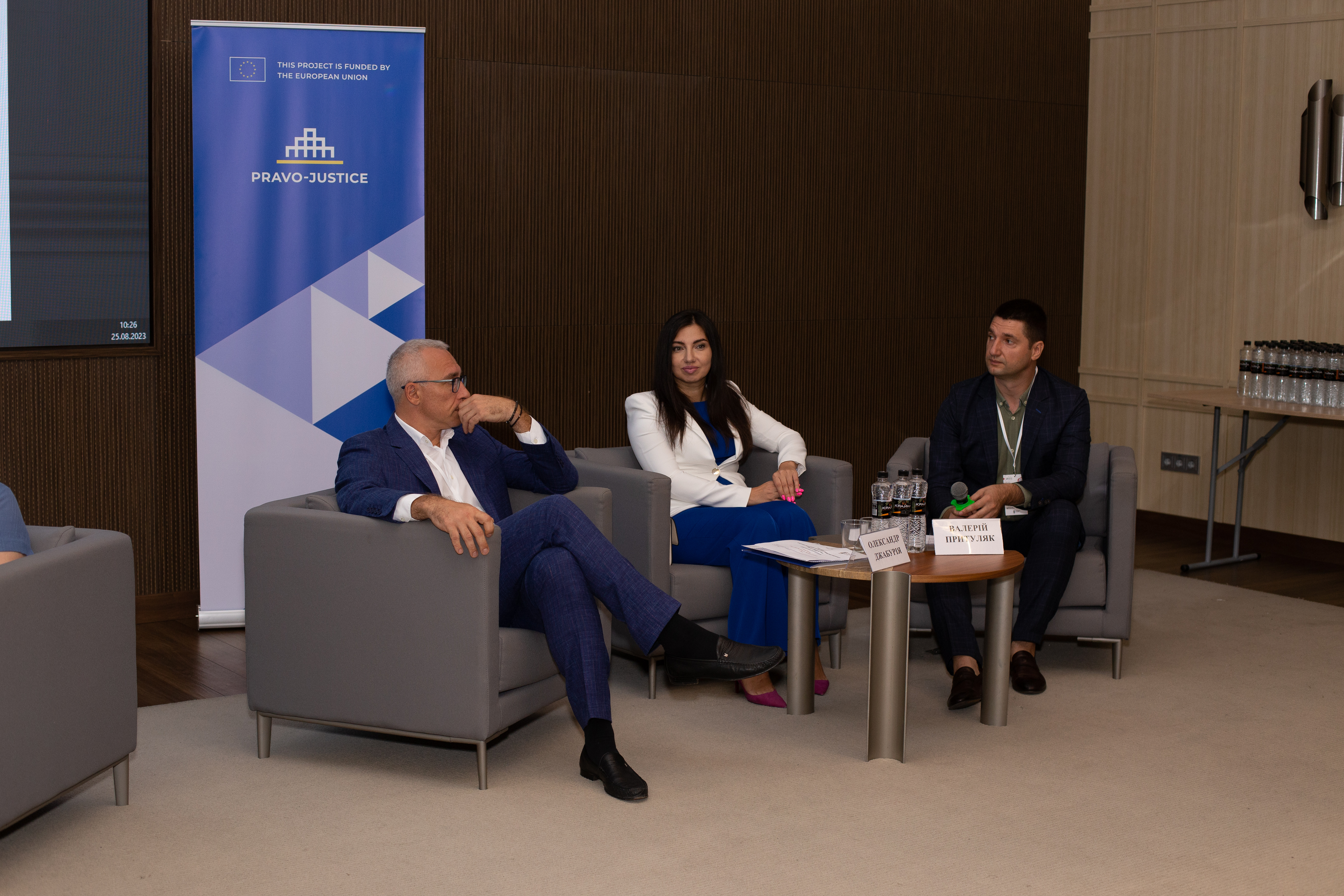
Oleksandr Dzhaburiia, President of the 5th Administrative Court of Appeal, when addressing the participants to the event with a welcome speech, emphasized that the execution of a court decision is an element of the service provided by the State. Therefore, it is necessary to ensure the delivery of high-quality service.
“We must understand that without ensuring proper execution of court decisions in the post-war period, it will be very difficult to attract investments and quickly restore our country. I hope that the ideas that we will outline today at the event will be implemented promptly enough,” urged Oleksandr Dzhaburiia.
Ihor Artemenko, President of the Odesa Court of Appeal, focused on reforming the mechanisms for the execution of court decisions, in particular, improving judicial control over the execution of decisions of Ukrainian judges.
“Unfortunately, as of today Ukraine is one of the anti-leaders in non-enfrocement of court decisions. Citizens sometimes do not believe anymore that a decision may be enforced by legal means. This is why we need to improve the enforcement mechanisms,” said Ihor Artemenko.
Halyna Dibrova, judge-speaker of the South-Western Economic Court of Appeal, is hopeful that the conference will become not only a platform for discussion, but will also contribute to finding some constructive solutions.
“New legislative initiatives in the field of enforcement should simplify procedures – so that it is easier for you (enforcement officers), and for us (judges) to do our work when parties to enforcement proceedings come to us,” said Halyna Dibrova.
The event was held in the format of four sections. Within the first section, the speakers presented international practices in the field of enforcement. Thus, Oleh Mykhaliuk, Key National Expert, EU Project Pravo-Justice, reported on global trends in the digitalization of enforcement proceedings. He spoke in detail about the innovative norms of the Code of Digital Enforcement, which was adopted by the International Union of Judicial Officers in 2021. They include: providing an EO with authorized access to all available state registers, which may contain information about the property, assets, and liabilities of the debtor; opportunity to use UAVs in their professional activities; enforcement of decisions at the expense of virtual assets. “In addition to the digital solutions that are important from the practical standpoint, the Code lays the foundations for creating conditions, securing the environment, and applying incentives to facilitate cooperation between the debtor and the EO, and to maintain dialogue between EOs and state regulators. It is worth mentioning separately the provisions of the code regarding cooperation between judicial officers from various jurisdictions,” said Oleh Mykhaliuk.
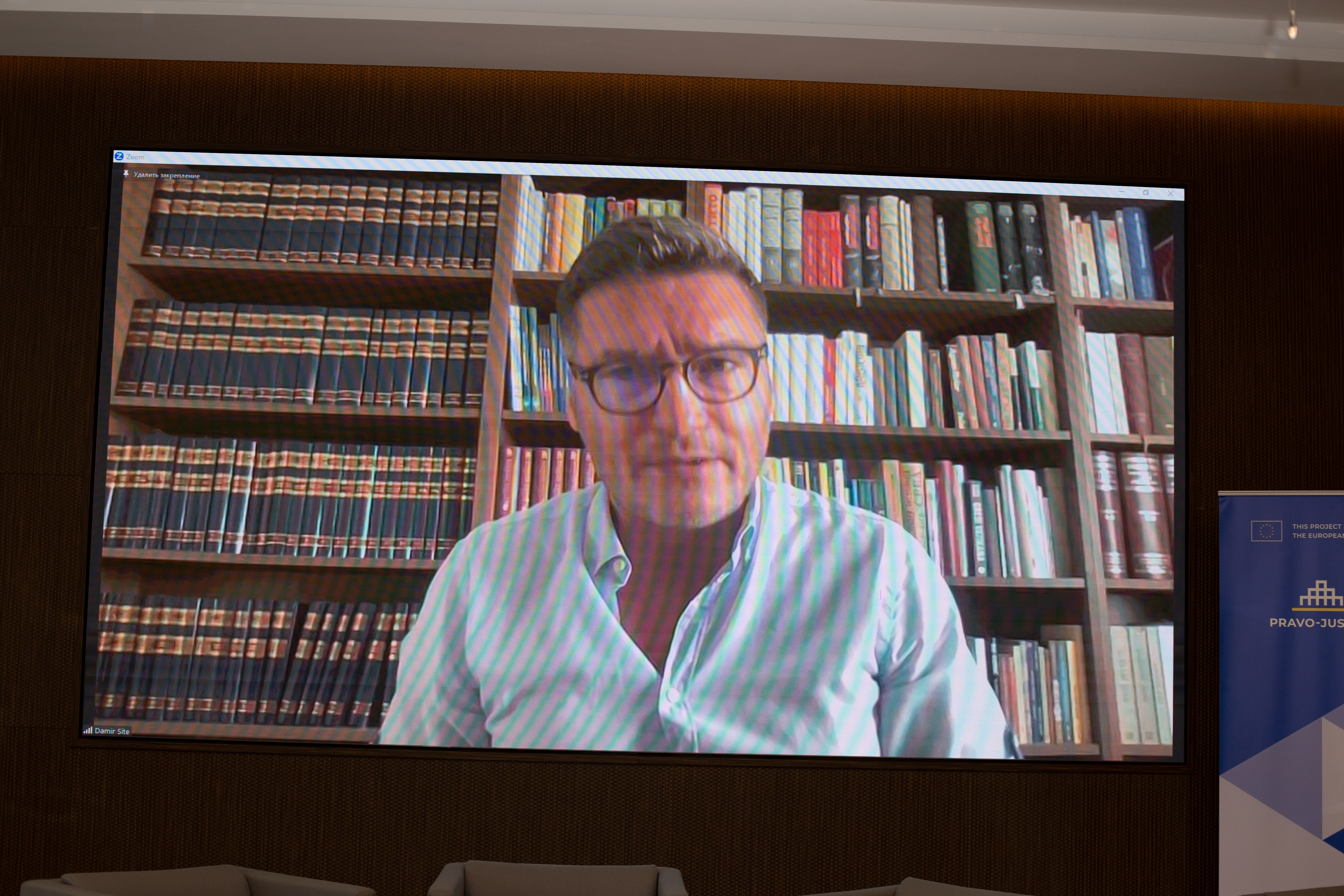
Damir Site, International Expert of the EU Project Pravo-Justice, introduced the three main European trends in the field of enforcement. The first one consists in the fact that since late 1990s, many European countries have switched from a public to a private model of enforcement, taking into account greater efficiency of self-employed lawyers. The second one is that enforcement procedures have become more mediation-oriented. As an example, he referred to the UK, where no enforcement proceedings can start unless at least one-hour mediation session between the debtor and the creditor has taken place.
“An attempt at negotiations is an indispensable part of the enforcement proceedings when it comes to a more or less standard situation,” said Damir Site. The third trend is that European judicial officers tend to abandon the procedure of foreclosure on movable property, as the cost of such foreclosure sometimes exceeds the benefit received by the creditor.
Katilin Popov, International Expert of the EU Project Pravo-Justice, PEO from Bulgaria, developed on the topic of European enforcement trends, focusing on regulatory initiatives and digitalization. He also advised his Ukrainian colleagues to more actively involve judges in the professional discussion.
“In order to ensure the effectiveness of justice administration, including execution of court decisions, there should be cooperation between the two stakeholders,” added Katilin Popov.
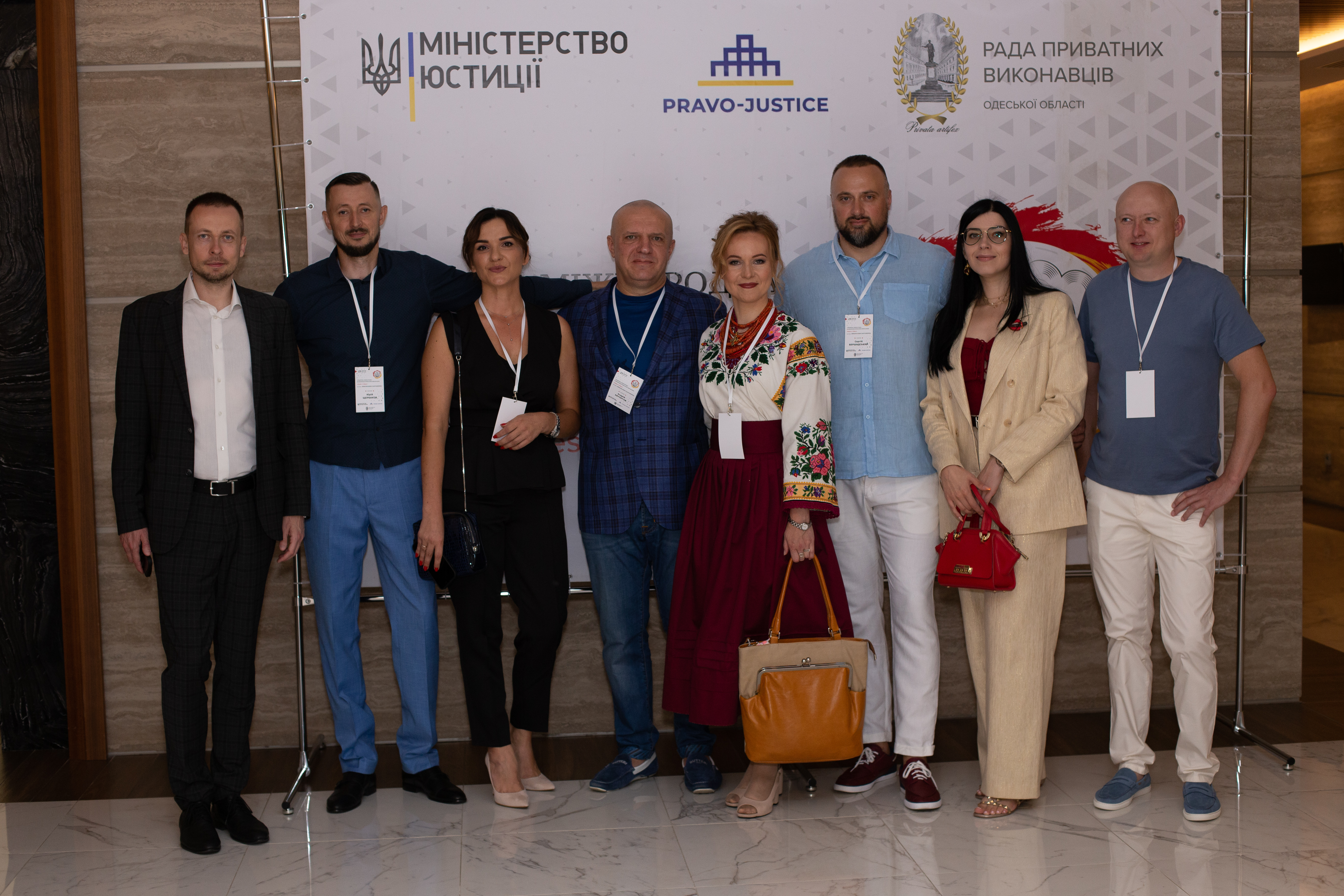
The challenges relating to martial law and other barriers to effective enforcement were covered within the second section of the conference. The third section of the event was dedicated to the detailed discussion of the role of courts and judicial control. Some other problematic issues in the field of enforcement of court decisions were raised within section four.
Following the findings of the Conference, the organizers are intending to develop proposals which could be used by the regulator and MPs for the purposes of legislative drafting.
The full video recording of the 6th Annual International Conference “Made in Odesa” on the topic: “Implementation at the Present Day” is available via the link.